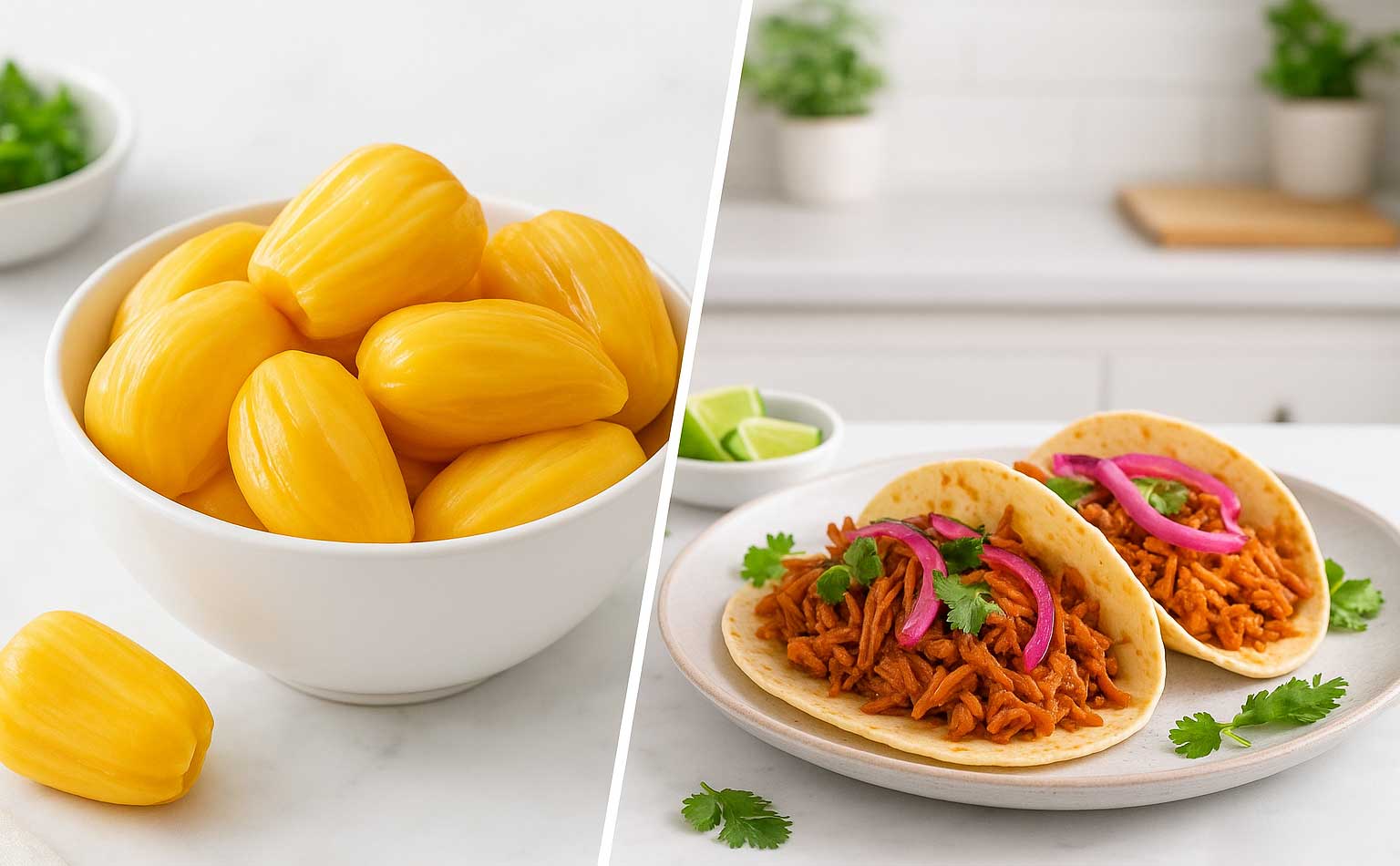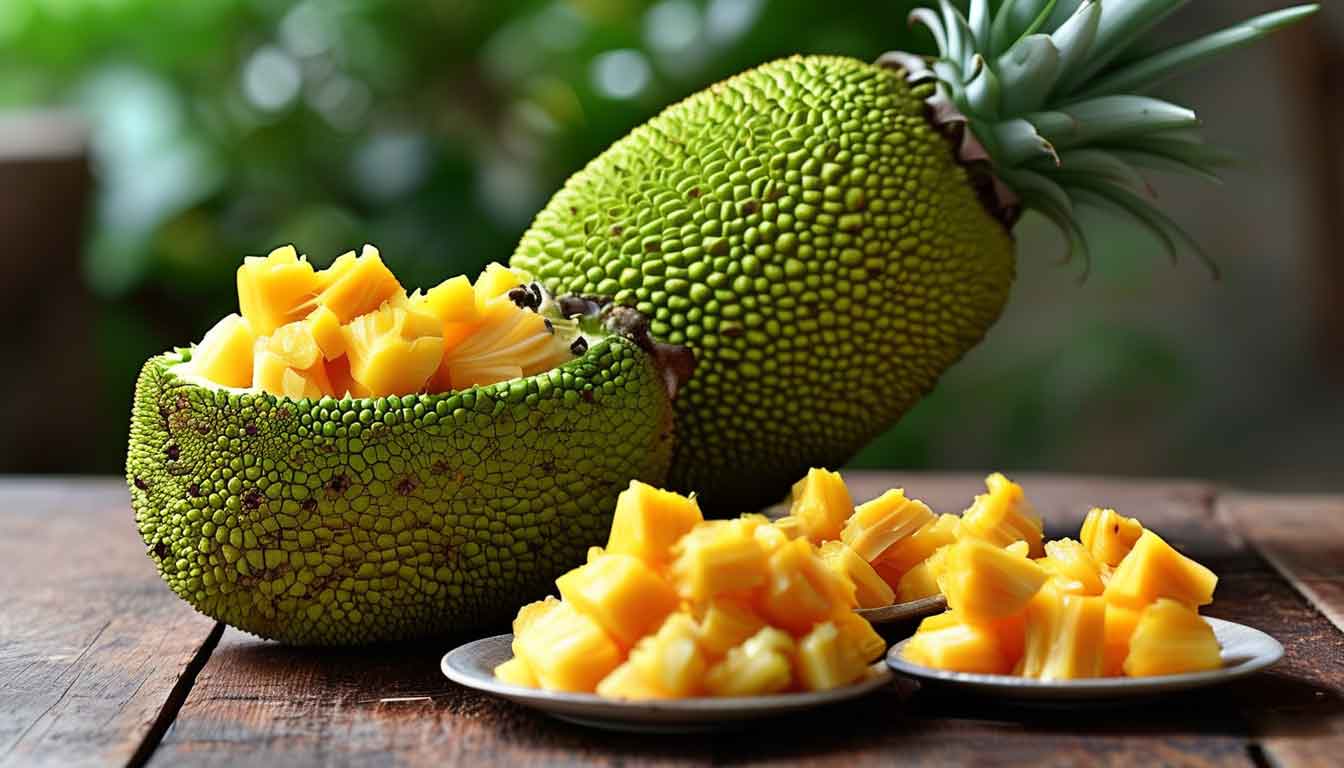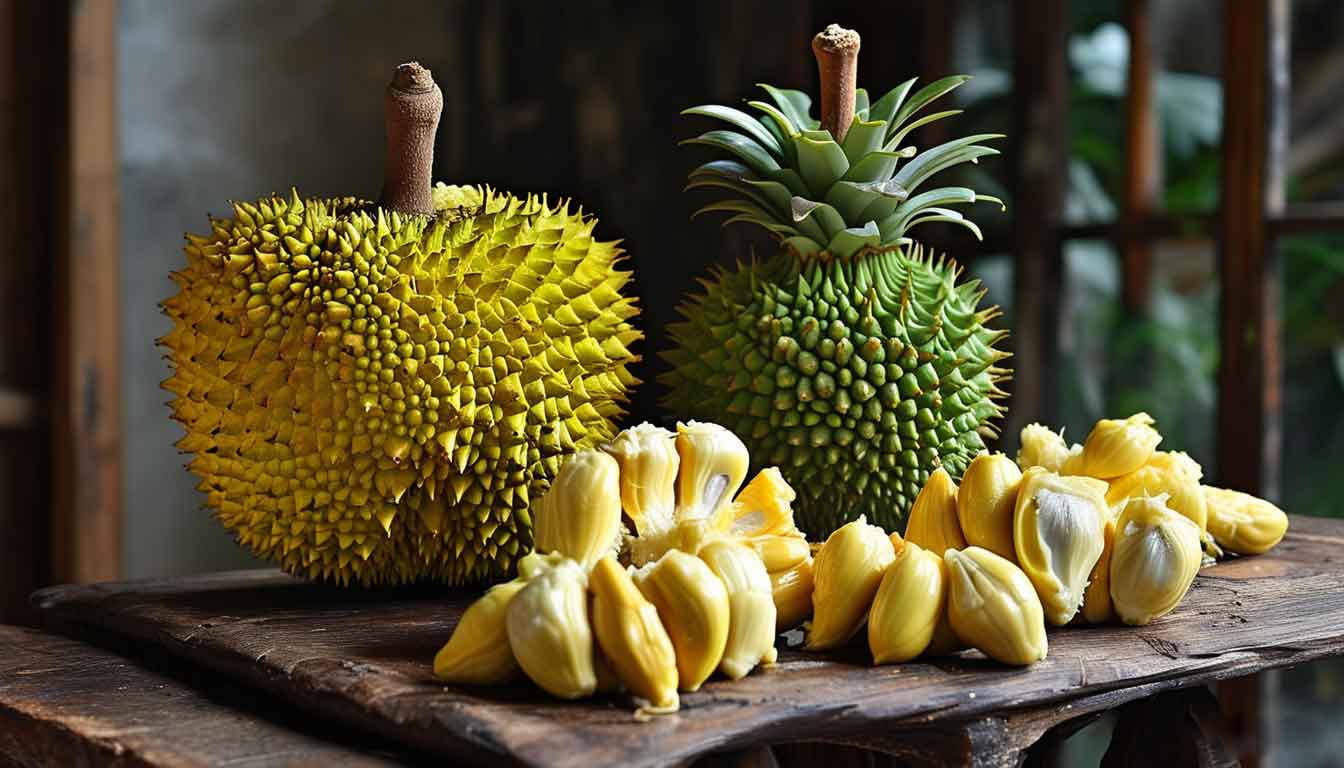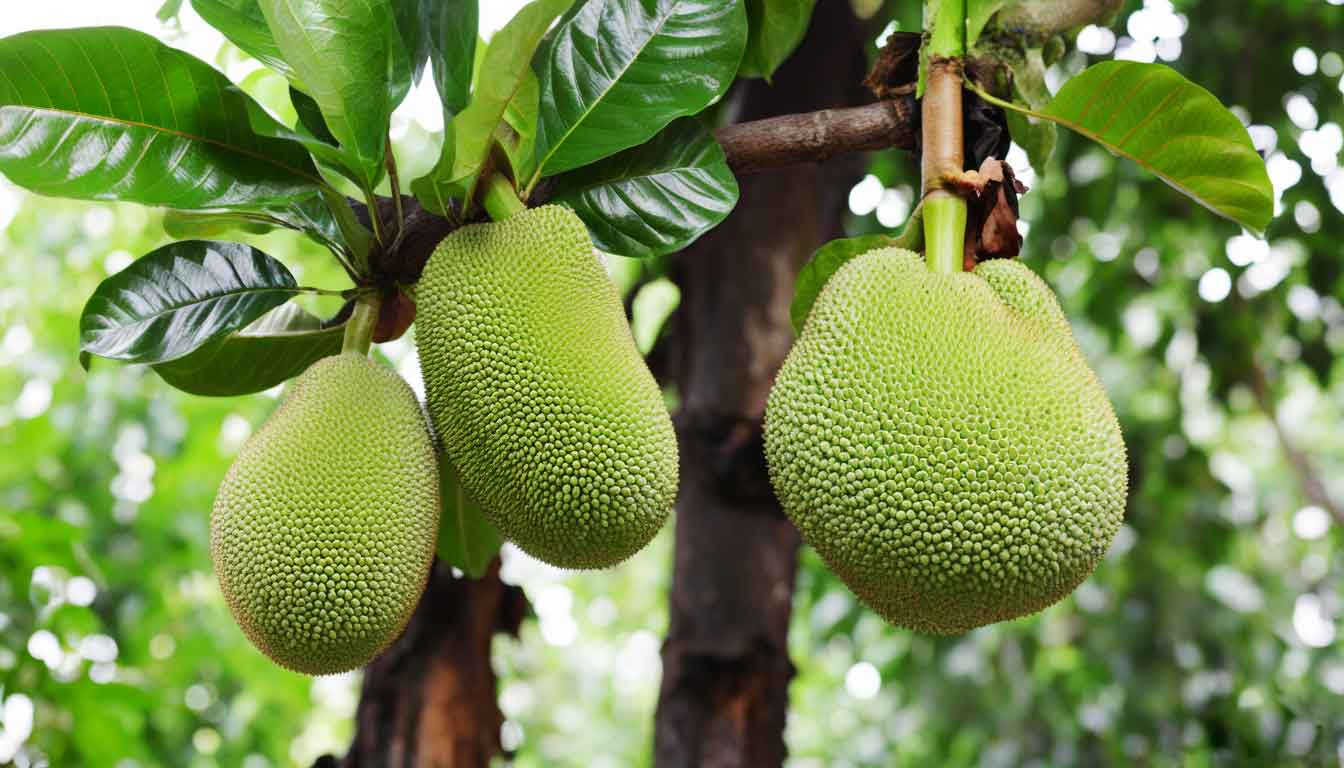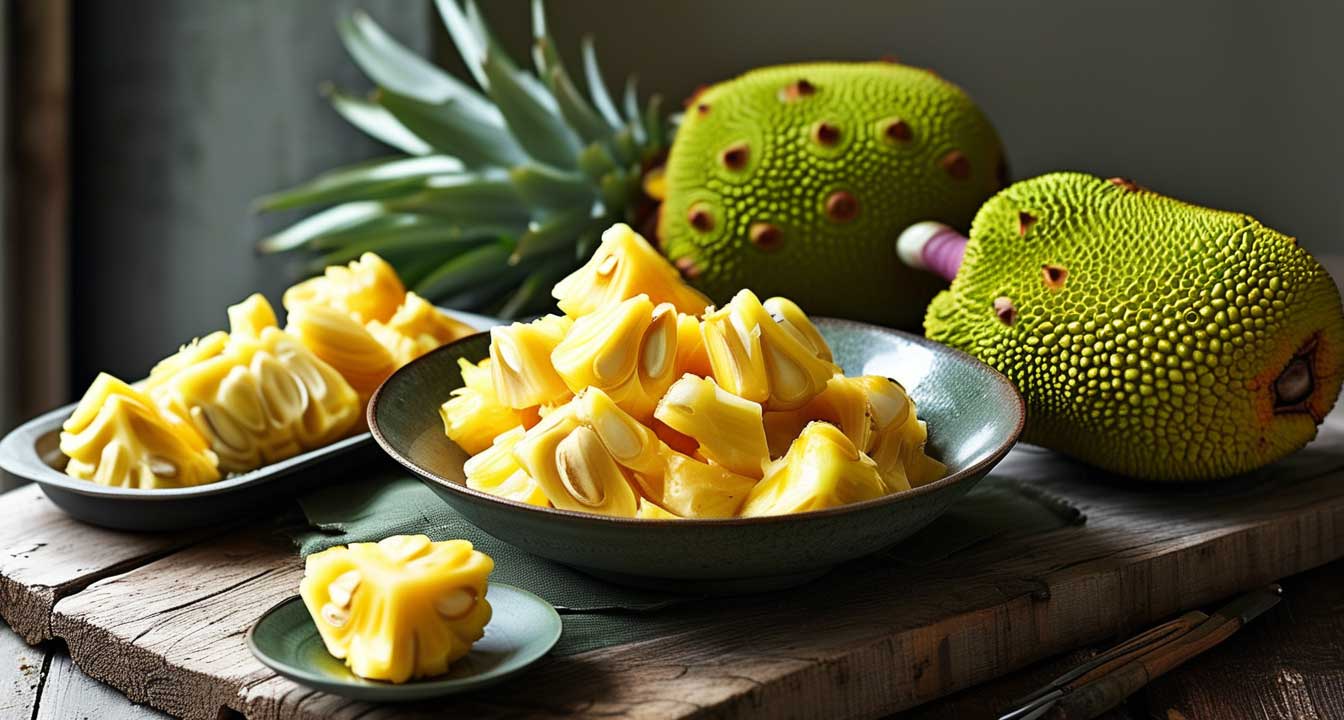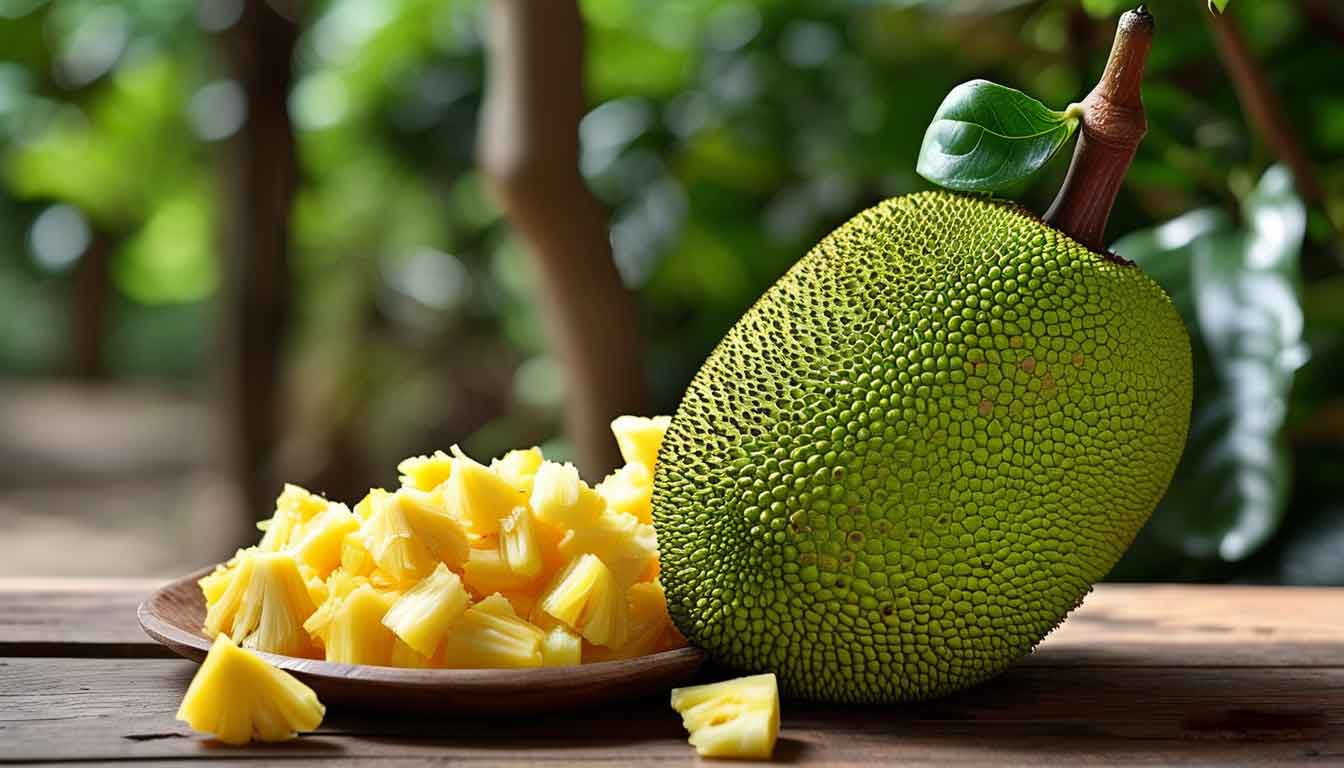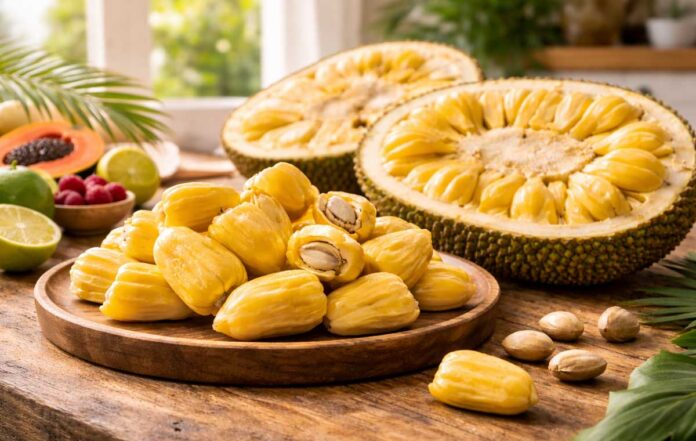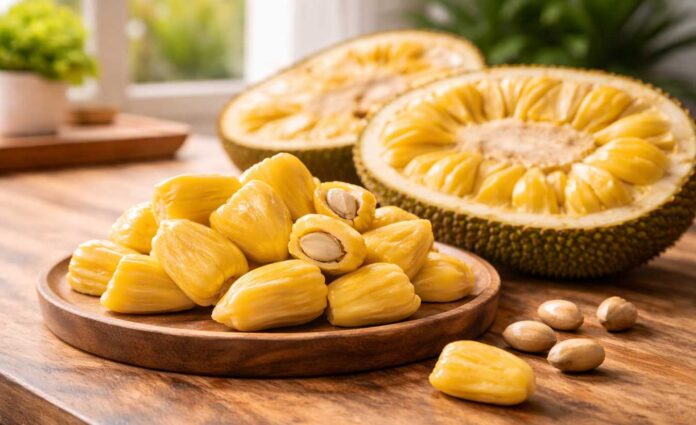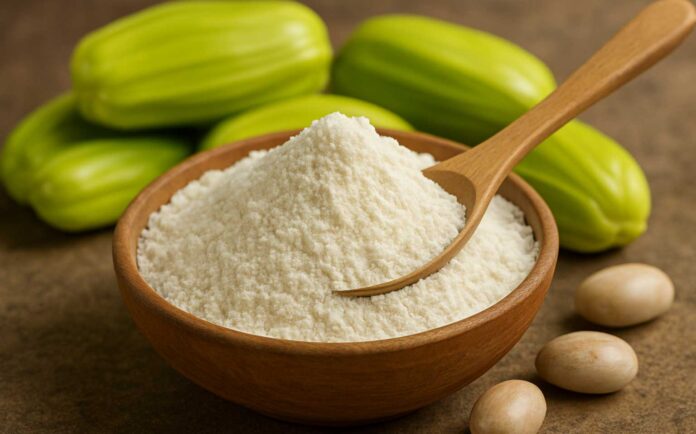Jackfruit Nutrition Facts, Benefits, and How to Eat It
Jackfruit is a large, tropical fruit that’s becoming more popular around the world, especially in the U.S. Known for its sweet taste and meaty texture, it’s packed with essential nutrients and health benefits.
Whether you’re curious about jackfruit nutrition facts per 100g, its benefits for men and women, or how to use it in your diet, this guide has everything you need to know.
What Is Jackfruit?
Jackfruit is a tropical fruit that comes from South India and belongs to the Moraceae family, which also includes figs and mulberries. It’s one of the largest fruits in the world, with some weighing up to 80 pounds!
The outer skin is spiky and green or yellow, and inside, you’ll find yellow fruit pods that are sweet and aromatic. Ripe jackfruit tastes like a mix of banana, pineapple, and mango. Unripe jackfruit has a mild taste and a stringy texture, making it a great meat substitute in vegetarian or vegan dishes.
Jackfruit Nutrition Facts (Per 100g)
Here’s a simple breakdown of jackfruit nutrition per 100g of raw, ripe fruit:
| Nutrient | Amount per 100g |
| Calories | 95 kcal |
| Carbohydrates | 23.25 g |
| Sugars | 19.08 g |
| Fiber | 1.5 g |
| Protein | 1.72 g |
| Fat | 0.64 g |
| Vitamin C | 13.8 mg (23% DV) |
| Potassium | 448 mg |
| Magnesium | 29 mg |
Jackfruit protein per 100g is about 1.72g, which is more than most fruits like apples or mangoes.
Health Benefits of Jackfruit
Jackfruit Benefits for Females
- Improves skin health: Thanks to its high vitamin C and antioxidants, jackfruit may help slow signs of aging and boost collagen.
- Boosts iron levels: Jackfruit contains iron and vitamin C, which helps with better iron absorption—important for women prone to anemia.
- Regulates hormones: The magnesium and fiber in jackfruit may support hormonal balance and reduce PMS symptoms.
Jackfruit Benefits for Males
- Supports muscle growth: Jackfruit’s protein and potassium content can support muscle function and recovery.
- Heart health: The fiber and antioxidants help reduce bad cholesterol and support a healthy heart.
- Improved energy: Natural sugars provide a quick energy boost, perfect for an active lifestyle.
General Jackfruit Health Benefits
- Controls blood sugar: With a low glycemic index and good fiber content, jackfruit helps regulate blood sugar levels.
- Boosts immunity: Rich in vitamin C, jackfruit strengthens the immune system.
- Improves digestion: The fiber helps prevent constipation and promotes healthy gut bacteria.
- Antioxidant-rich: Contains flavonoids and carotenoids that reduce inflammation and protect against chronic diseases.
- Wound healing: Vitamin C helps with collagen production, which is vital for skin and tissue repair.
Raw Jackfruit Nutrition
Unripe (raw) jackfruit has fewer sugars and calories compared to the ripe version. It’s great for savory dishes, and its stringy texture makes it ideal for replacing shredded chicken or pork.
- Calories (per 100g raw): About 80 kcal
- Carbs: Lower than ripe jackfruit
- Fiber: Higher than ripe jackfruit
- Protein: Around 2g
Great for low-sugar diets and diabetic-friendly meals.
Jackfruit Seeds Benefits
Don’t toss the seeds! Jackfruit seeds are edible and offer plenty of health perks:
- High in protein: Around 7g of protein per 100g
- Rich in antioxidants: Helps fight inflammation
- Improves digestion: High fiber content supports gut health
- Boosts brain function: Contains thiamine and other B-vitamins
- Bone health: Packed with magnesium, iron, and calcium
You can boil, roast, or grind the seeds into flour or hummus.
Jackfruit Disadvantages & Side Effects
While jackfruit is safe for most people, there are a few things to watch out for:
Jackfruit Disadvantages
- Allergic reactions: People with latex or birch pollen allergies may react to jackfruit.
- Blood sugar effects: Jackfruit may lower blood sugar, so people with diabetes should monitor their levels closely.
- Short shelf life: Once opened, jackfruit spoils quickly if not refrigerated.
- Sticky handling: The inner latex can be messy—use gloves and oil your knife!
How to Eat Jackfruit
Jackfruit is super versatile! You can enjoy it raw, cooked, ripe, or unripe.
Eating Ripe Jackfruit
- Eat the sweet yellow pods fresh.
- Add to smoothies, desserts, or yogurt.
- Each piece of ripe jackfruit has about 20-30 calories, depending on size.
Cooking Unripe Jackfruit
- Boil or pressure-cook until tender.
- Use in tacos, curries, soups, or stir-fries.
- Pairs well with BBQ sauce for a vegan pulled “pork” sandwich.
Jackfruit Recipes to Try
- Jackfruit curry
- BBQ pulled jackfruit sandwiches
- Jackfruit tacos
- Jackfruit stir-fry
- Jackfruit seed hummus
Frequently Asked Questions
Can I eat jackfruit raw?
Yes! Ripe jackfruit can be eaten raw and tastes sweet and tropical.
Is jackfruit good for weight loss?
Yes, it’s low in fat, high in fiber, and keeps you full longer.
How many calories are in 1 piece of jackfruit?
On average, 1 piece of ripe jackfruit has 20–30 calories.
Is jackfruit a superfood?
While there’s no official definition of “superfood,” jackfruit is nutrient-rich, antioxidant-packed, and offers many health benefits.
Who should avoid jackfruit?
Anyone with latex or birch pollen allergies should be cautious.
Final Thoughts: Should You Add Jackfruit to Your Diet?
Absolutely! Jackfruit is a nutritious, delicious, and versatile fruit that fits well in both sweet and savory dishes. It’s rich in key nutrients like vitamin C, potassium, and fiber, and offers plant-based protein, making it ideal for vegetarians and vegans.
Whether you’re looking for a meat substitute, want to boost your fiber intake, or just love trying new tropical fruits, jackfruit is a fantastic choice.
Just remember to watch out for potential allergies, and enjoy it fresh when in season or canned/frozen year-round.
